Master Tells Stories: How to deal with a rebellious child
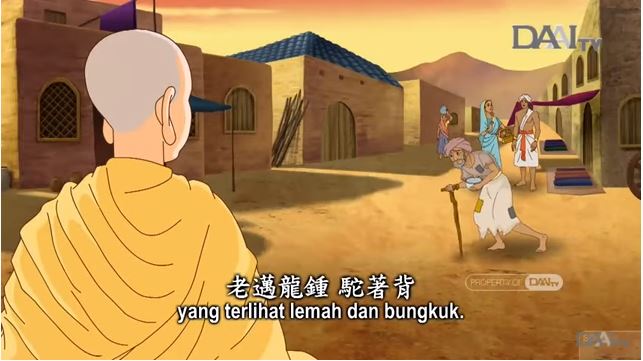
Every day, I think about how difficult it is for people to change their mindsets. The Buddha came to this world to guide us all to get rid of our afflictions and turn our misguided views into right ones. Easy as it might sound, ridding ourselves of afflictions and correcting our wayward ways aren't that simple.
However, the Buddha guided everyone patiently for 49 years. Exactly how many of us can understand the Buddha's intentions, truly take in the Buddha's teachings, and transform our minds and our ways? The Buddha's teachings aim to purify our mind, however, after our mind is cleansed, it easily becomes tainted again. This is truly discouraging.
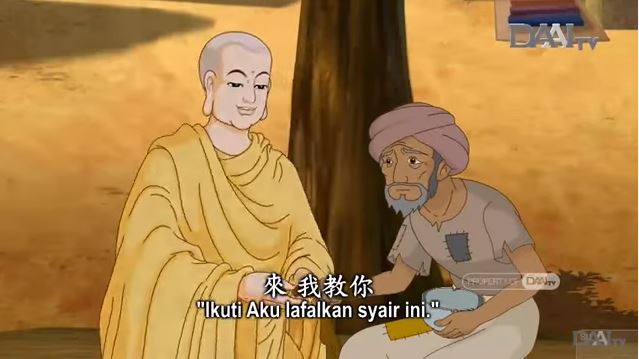
As mundane beings, we tend to be forgetful. So, the Buddha had to work like a cleaner. He'd scrub and rinse what's dirty. If that didn't do the trick, he'd repeat the process. If that still didn't work, he'd do it again. So, for the same stain, he'd clean it over and over again.
The Buddha wished that through his teachings, all of us can return to our true nature. And what is our nature? Our pure, true nature is inherently good. Yet, returning to our pure, true and good nature is difficult. In hospitals, we can always see elderly people. If we ask them, "Do you have children?" "Yes." Do they come visit you? "No." Do they come visit you? "No." So, they are very dispirited.
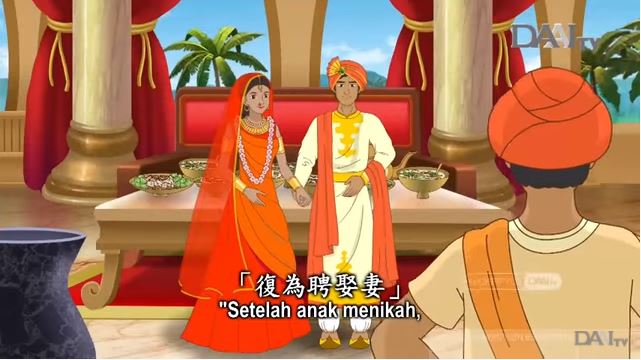
Filial piety is the foundation of all goodness. If someone does something wrong, it is possible that no one will know about it. Yet, if someone is not good to their parents, it is obvious.
One day, when the Buddha walked along the streets, he saw an old man whose back was arched and looked debilitated. He walked with a cane with much difficulty. With a bowl, he begged along the streets. Seeing this, the Buddha asked him: “Old man, you seem to be advanced in age. Why aren't you at home? Have you no sons?”
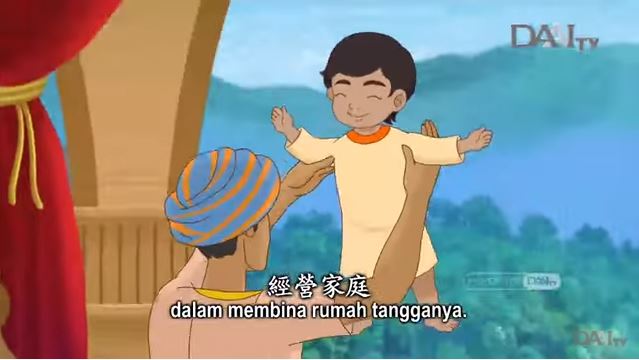
“I do have a son.”
“If so, why are you begging on the streets. if you have trouble walking?”
The old man replied, "I do have a son," and even my own home. Yet, after my son got married, he treated me terribly and kicked me out.”
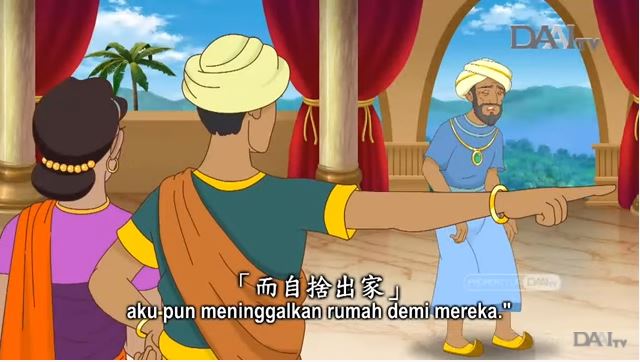
Hearing this, the Buddha felt sorry for him. So, he told the old man: “Here, do as I say. Every day, chant this verse when you are begging, no matter where you are.
“How does it go?”
“Listen carefully, and remember it well. Out of the joy for having a son, I accumulated wealth and fortunes.”
“After he got a wife, I left home for them.”
This means that the old man was kicked out and had to live on the streets.
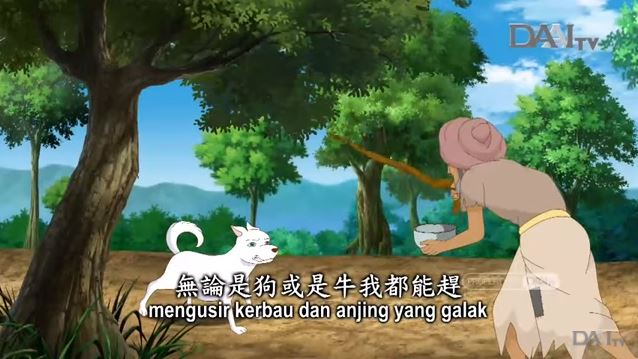
“My son was mean and despicable and turned out betraying me. I ended up like this because I had worked hard my whole life to provide for my family. I owned fields and a house. When my son got married, I was very happy and gave him much of my properties, fields and riches. But now that I'm old in age, my son has betrayed me.”
He no longer loved his father and cast him out from his home. With a demon's heart, he cast his father away. The son had the heart of a demon. He despised his elderly and precious father and cast him away. The son made his old father beg for food from door to door. The son was still young, yet, his elderly father had to beg on the streets to survive.
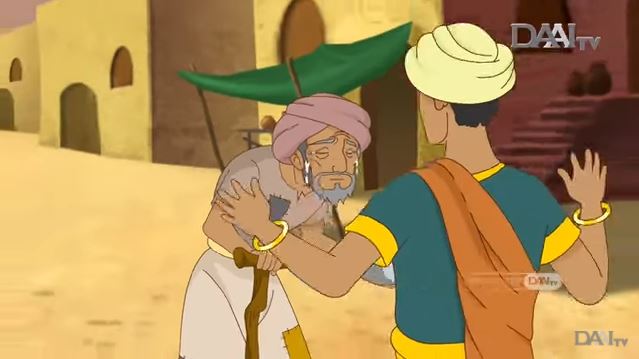
“Now, this crooked cane is my best companion. It won't leave me, like my son. The cane won't desert me the way my son did. It keeps feral cows away and keeps me safe from dangers. This cane can drive away wild cows and wild dogs, and it keeps me safe in dangerous places. With this cane, I can drive savage dogs away and walk through dark places safely. and walk through dark places safely.”
The old man chanted this verse when begging and the whole village talked about it. When the son heard this, he felt ashamed for doing something so heartless. So, he quickly brought his father home. Back home, he quickly helped his father bathe and change. He served his father wholeheartedly to make up for the past.
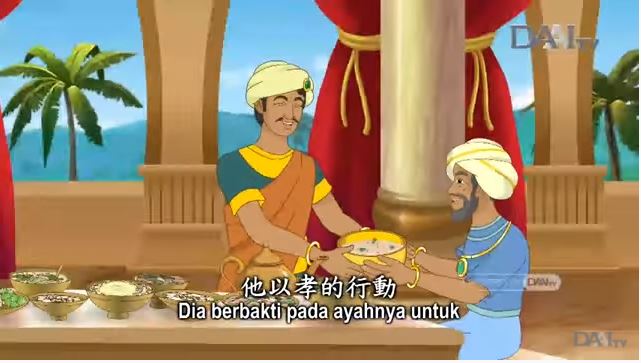
The son who was raised by his father since little suddenly acted against his conscience after he got married and was cruel to his father. After everyone learned about his deeds and spread them by word of mouth, he reflected on his actions and felt ashamed, so he changed his ways and brought his father home to serve him.
If we make mistakes, we must change our ways. If we don't, we'd always be acting against our conscience. The greatest punishment in life is regret. So, why give rise to afflictions in ourselves and in others? The Buddha wanted us to untie the knots in our mind and rid of afflictions. To err is human. The key is to reform.
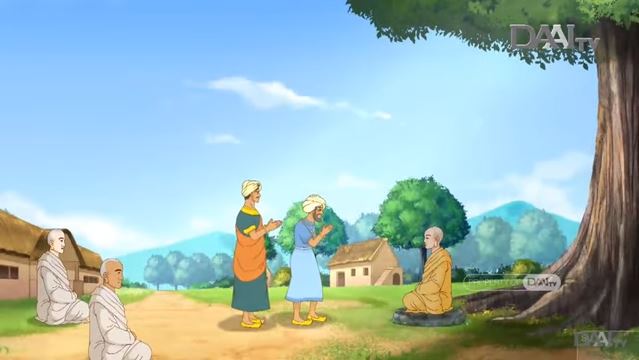
We often hear, "Please have conscience." Indeed. We must have a clear conscience. If we act against our conscience thinking that as long as no one knows about it, we can do bad things secretly, then we are shameless. If we think that no one has heard about or seen our mistakes, so we don't admit our wrongs and don't repent ourselves, we give rise to afflictions.
Also, if someone sees us doing wrong, we mustn't think, "So what? This is what I do.” This will truly ruin our ethics and integrity.
Source: Master Tells Stories (DAAI TV)








 Sitemap
Sitemap